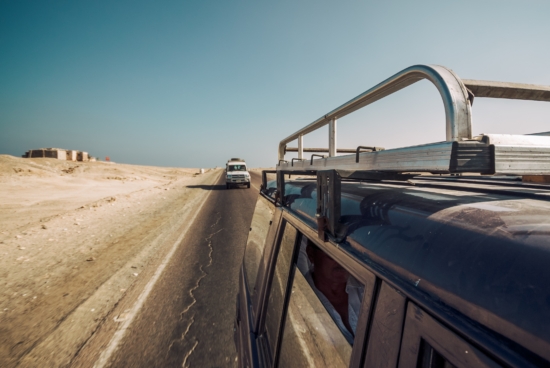Egyptian automotive aftermarket already worth US$1-2 billion and growing fast
 New vehicle sales in Egypt have recently grown to over 200,000 units per year, which means aftermarket sales in general and tyres in particular are likely to follow in the next year or two (Source: Kasjan Farbisz; Pixabay)
New vehicle sales in Egypt have recently grown to over 200,000 units per year, which means aftermarket sales in general and tyres in particular are likely to follow in the next year or two (Source: Kasjan Farbisz; Pixabay)
Egypt’s automotive aftermarket has been dubbed “one of Africa’s most exciting markets” as its motoring population and vehicle sales grow, its economy expands and the government moves to combat automotive emissions. Germany’s Africa business experts africon, the knowledge partners of Automechanika Dubai, suggests these trends have resulted in an aftermarket now worth between US$1-2 billion in a whitepaper on the subject.
The paper’s positive and opportunistic sentiment points to the country’s rising population – now the third-largest within Africa with more than 100 million people – and its economic advancement, having overtaken South Africa as the continent’s second-largest economy with a GDP of US$360 billion and sturdy growth forecasts.
“The IMF predicts that growth will slow to around 2.5% this year but recover to more than 5% from 2022 forward,” the paper reports. “After economically difficult years in 2016/17, inflation has come down to around 6%. Unemployment has been reducing, and GDP per capita in US$ terms has increased by almost 50% since 2017. Consequently, Egypt has been the largest recipient of foreign direct investment (FDI) in Africa for several years in a row, receiving more than US$9 billion worth of investments in 2019 and almost US$6 billion in 2020.”
The growth has fed into the aftermarket, with the country now being home to one of Africa’s largest vehicle fleets with around six million vehicles on the country’s roads, with the majority – approximately 4.6 million – being passenger cars.
This is followed by almost a million trucks and about 470,000 buses. Most passenger cars are petrol-powered, while many commercial vehicles rely on diesel engines but that could soon change.
“The government is increasing the share of dual-fuel cars, which can use both petrol and compressed natural gas (CNG). Around 300,000 vehicles in Egypt already use CNG. This number will likely increase further over the next years,” the paper reports.
Egypt is also taking bold steps to replace internal combustion engines with more environmentally friendly alternatives. Last year the government announced an initiative to encourage consumers to replace old vehicles for new ones operating on CNG engines with extended credit facilities among its green program incentives.
This has led to China’s Dongfeng Motors planning to assemble up to 25,000 electric vehicles a year in an Egyptian assemble plant.
“New vehicle sales in Egypt have recently grown, currently standing at more than 200,000 units per year. Around half of this figure is assembled locally. Egypt is home to notable local vehicle assemblers like GB Auto, General Motors Egypt / Mansour Automotive, and Nissan. While most passenger vehicles are produced for the domestic market, many buses are exported to regional markets,” explains the whitepaper.
Egypt’s importer/distributor landscape is a mix of small and large companies, most of which are based in Cairo. The independent aftermarket is fragmented. The importers/distributors sell directly to end-users, workshops, and a network of wholesalers and retailers across the country.
E-commerce is said to be fast emerging as a significant aftermarket force through highly visible platforms such as Odiggo, Tawfiqia, Egyparts and Amazon Egypt.
The Egyptian aftermarket is ripe for growth and to offer up great opportunities for parts producers, distributors, and service providers, but increasing competition from local producers may mean overseas suppliers will need to invest in their own on-the-ground structures or seek out ways to add value locally to increase market shares.
GB Auto, a leading Egyptian automotive supplier, sums up the expected scenario: “We currently see three factors strongly influencing the future of our market in Egypt: firstly, we are expecting a period of robust growth across various industry segments. Secondly, online sales will likely gain significant importance. Thirdly, the share of CNG-powered vehicles increasing further, which will open up new industry segments and growth opportunities,” explained Mohamed Yahia, Managing Director of Ready Parts (GB Auto Group).
Others looking for indicators of the growth potential can track the Egyptian visitor presence at Automechanika Dubai which has risen by 20% since 2015.
“We anticipate a surge in visitors from Egypt when the show returns from December 14th-16th December,” commented Mahmut Gazi Bilikozen, Automechanika Dubai’s Show Director. “And for the future, an Egyptian industry pavilion might not be too much of a far stretch.”


 epyx
epyx

Comments